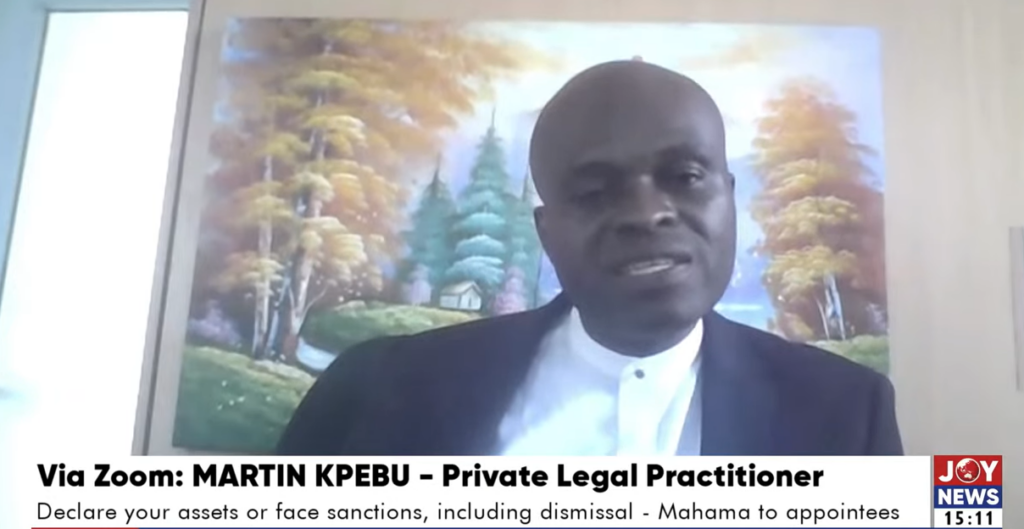Private legal practitioner Martin Kpebu has criticised the March 31 deadline set by President John Mahama for government appointees to declare their assets, describing it as too far off.
Mr Kpebu argued that the constitution requires appointees to declare their assets before assuming office, not months after.
Speaking on The Pulse on JoyNews on Tuesday, February 18, he referred to Article 286(1) of the 1992 Constitution, which states that public office holders must submit a written declaration of their assets and liabilities to the Auditor-General “before taking office.”
“The March 31 deadline is too long. The Constitution is clear, it should be done before taking office. Initially, we heard two weeks, but now it has been pushed to the end of March 31st. We can do better,” Mr Kpebu said.
He explained that while Act 500, the Public Office Holders (Declaration of Assets and Disqualification) Act, allows up to six months for asset declaration, that law contradicts the constitution. He emphasised that the constitution is the supreme law, and any law inconsistent with it is void.
Mr Kpebu further noted that civil society activist, Mensah Thompson, has already challenged the six-month provision in court, and the Supreme Court is expected to give a ruling on the matter.
He stressed the importance of immediate asset declaration, warning that delaying the process exposes appointees to corruption.
“When ministers assume office, big contractors quickly come around to introduce themselves, and business deals start almost immediately. Delaying asset declaration gives room for questionable transactions,” he added.
Read Also: Mahama submits his asset declaration form to Auditor-General
Mr Kpebu called on President Mahama to reconsider the March 31 deadline and ensure that asset declarations align strictly with the constitutional requirement.
“We should appeal to the President to look at this again. The constitution is the supreme law, and we must follow it,” he said.
Read also: Mahama to gov’t appointees: Declare your assets or face sanctions, including dismissal
DISCLAIMER: The Views, Comments, Opinions, Contributions and Statements made by Readers and Contributors on this platform do not necessarily represent the views or policy of Multimedia Group Limited.

















